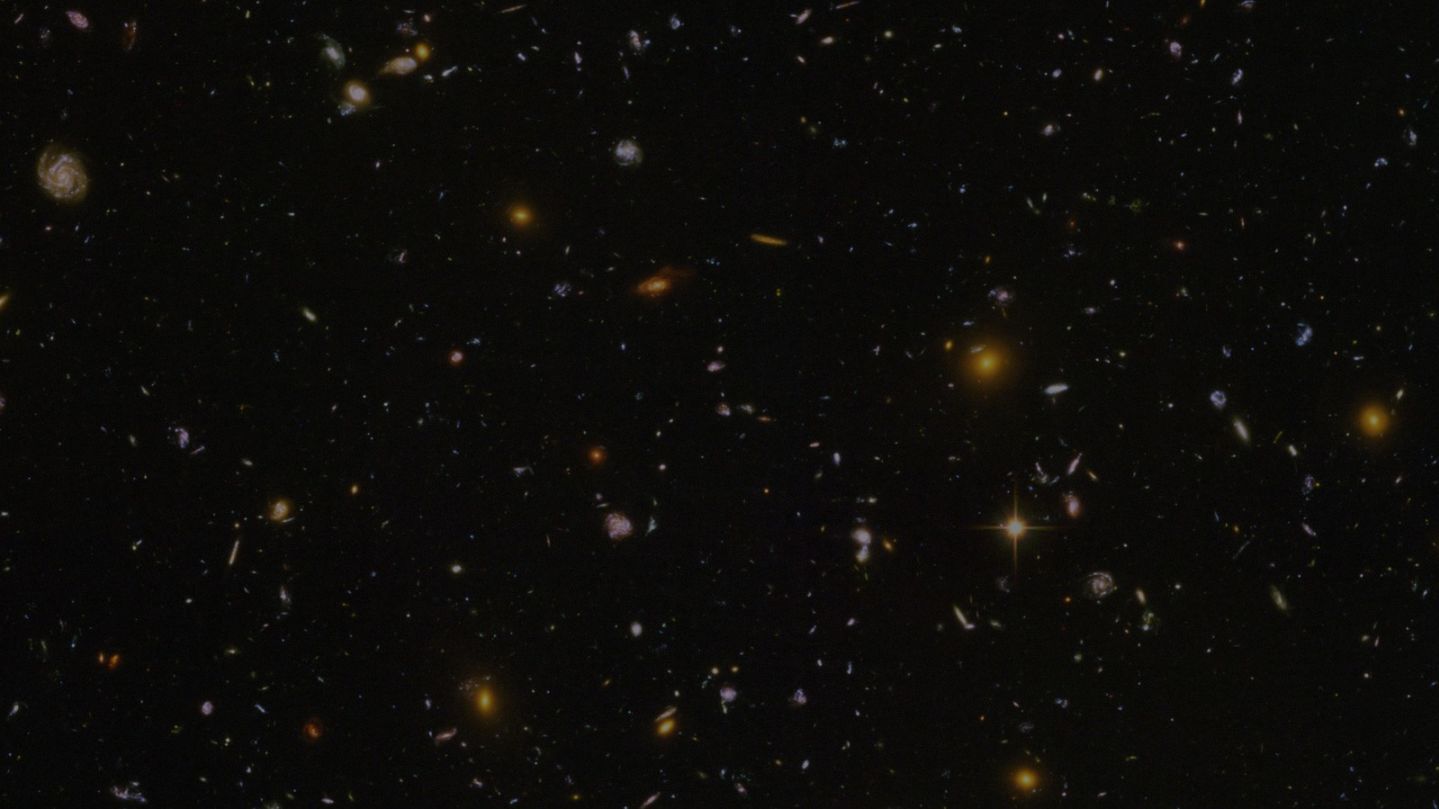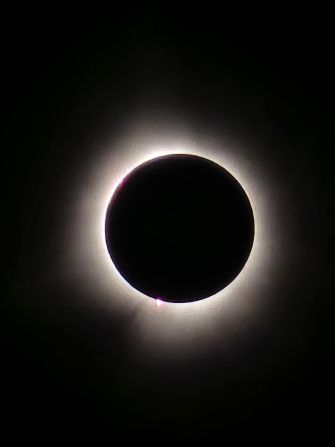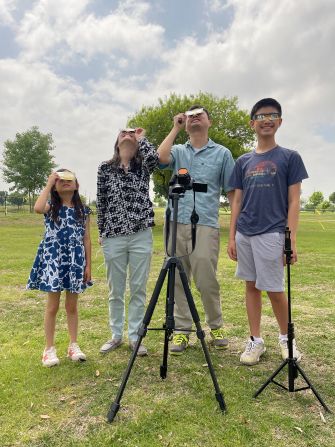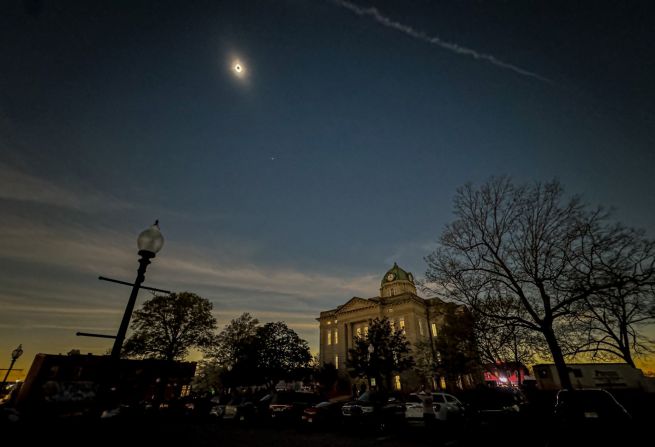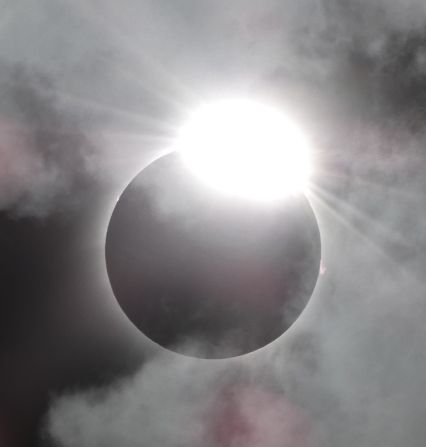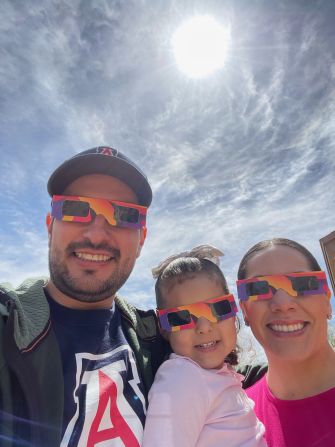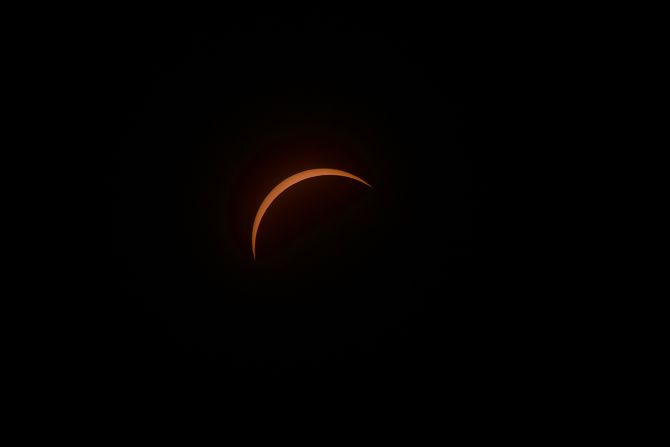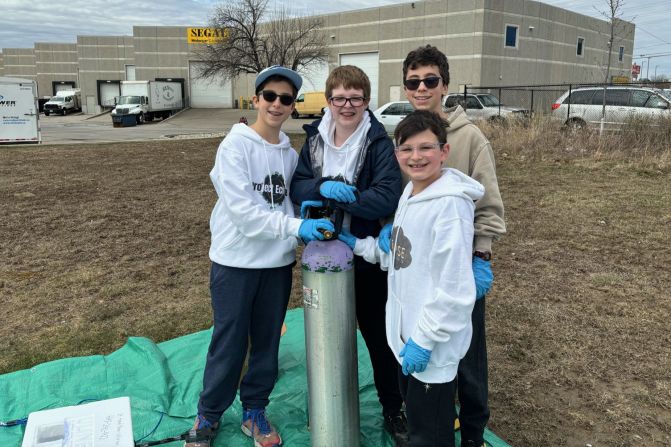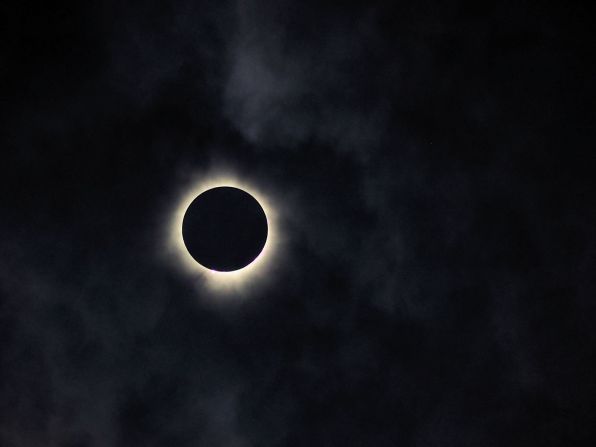Editor’s note: A version of this story appeared in CNN’s Wonder Theory science newsletter. To get it in your inbox,?sign up for free here.
Standing alongside my colleagues as we watched the?total solar eclipse, I was struck by the way that wonder unites us all.
We were a few of the more than 16,000 people gathered at the Great Lakes Science Center in Cleveland to observe the celestial spectacle.
People struck up friendships on the lawn, a short distance from Lake Erie’s expanse, as they anticipated sharing a once-in-a-lifetime moment.
Nothing prepared me for the intense emotions I felt as Baily’s beads and the “diamond ring” effect gave way to totality. Temperatures dropped as a 360-degree sunset fell in a stormy-looking sky, and the sun released pink ribbons of light that danced in its corona.
For four minutes, the spellbound crowds witnessed an event ancient humanity also had experienced. And the beauty of it is, we spent those unforgettable moments together.
Solar update

Speaking of the joy of shared experiences, thank you, dear readers, for sharing your photos and stories of the eclipse with us!
Michael Goldstein, 12, of Toronto and his friends Ilan Kagedan, Michael “Misha” Vishnever and Brady Sonshine launched a weather balloon from Vaughan, Ontario, before traveling to Burlington to catch a glimpse of totality.
The balloon, carrying two cameras and two trackers, floated 552 miles (888 kilometers) and landed in Green Hills Preserve in North Conway, New Hampshire, before being recovered Wednesday, he said.
See Goldstein’s stunning image of the eclipse in the gallery of our Wonder Theory reader images.
Eager to chase the next eclipse? We’ve rounded up a list of the next ones, which might?inspire you to travel for some truly stellar views — and don’t forget to?hold onto your eclipse glasses.
Fantastic creatures
Parrots are intelligent creatures, and now researchers are testing how deep those cognitive skills go.
The birds have problem-solving skills on par with young children. When presented with a balloon-popping game on a tablet, parrots showed signs of mental stimulation.
But the game was difficult for the feathered creatures because of their anatomy — and the research could lead to a new design for?tablets more geared for use by the brainy birds.
Explorations
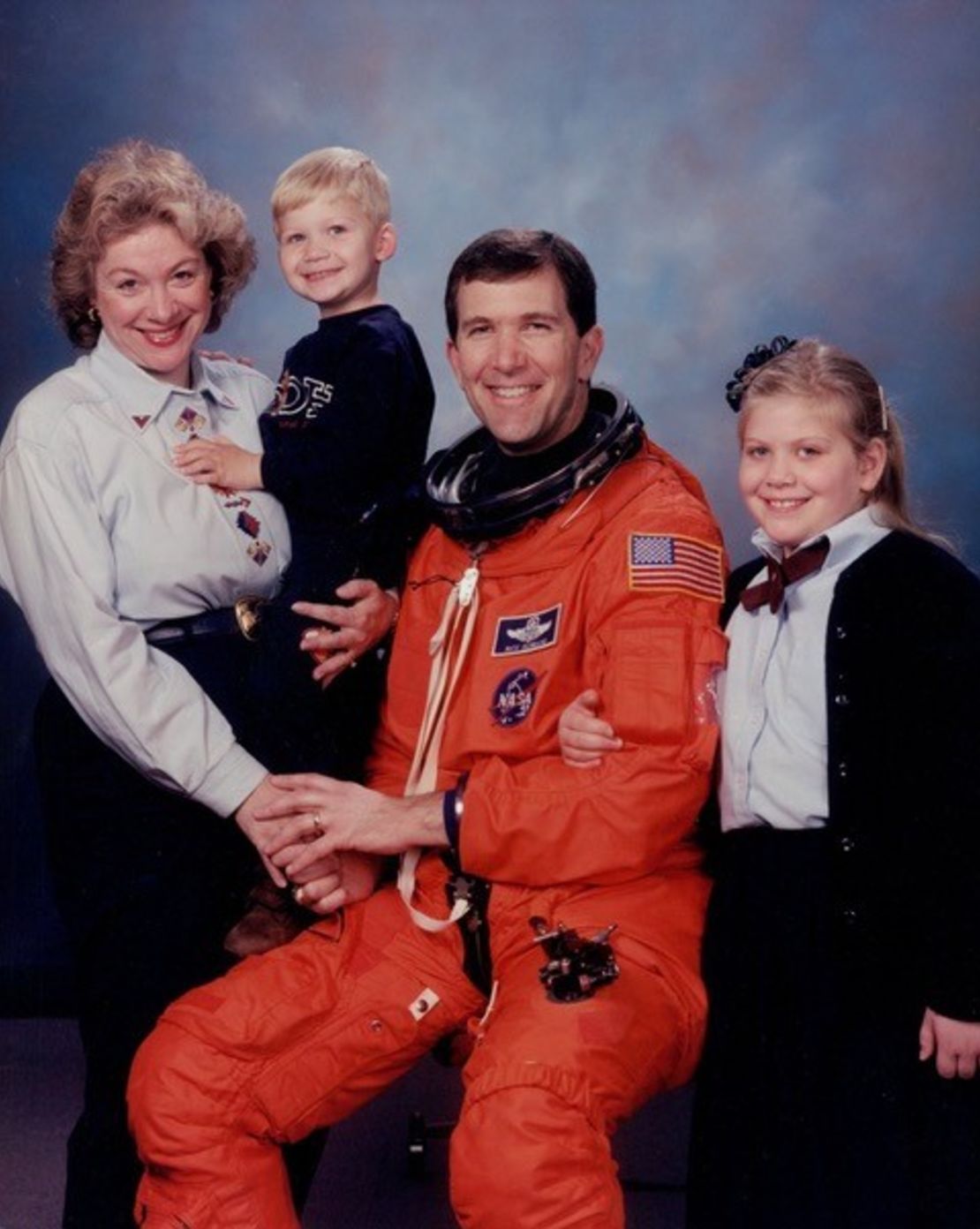
On January 28, 2003, Evelyn Husband and her spouse, Rick, celebrated their dating anniversary by conducting a video call while he was commander of the space shuttle Columbia. Neither knew it would be their final conversation, and the shuttle broke apart on reentry that February 1.
More than 21 years later, family members such as Evelyn and her daughter, Laura Husband, carry on the legacy of their loved ones.
Evelyn is a board member of a ministry that provides mentoring to fatherless boys, and Laura is pursuing creative passions that she shared with her dad.
The Columbia tragedy also changed the way NASA approached spaceflight in five key ways following the disaster to make exploration safer following the disaster.
Watch the final two episodes of the CNN Original Series “Space Shuttle Columbia: The Final Flight” at 9 p.m. ET/PT Sunday.
We are family
Since the 1991 discovery of his 5,300-year-old frozen remains in the Tyrolean Alps, ?tzi the Iceman has intrigued scientists.
The authors of a new study suggest a single-point puncture tool was likely used to make the 61 tattoos on his body, and it’s possible that the markings were?regarded as an ancient form of healing.
Separately, researchers uncovered an ancient grave in what’s now Patagonia in Argentina including a?person buried with a fox, suggesting that the canine relatives of dogs were once humans’ best friends.
A long time ago
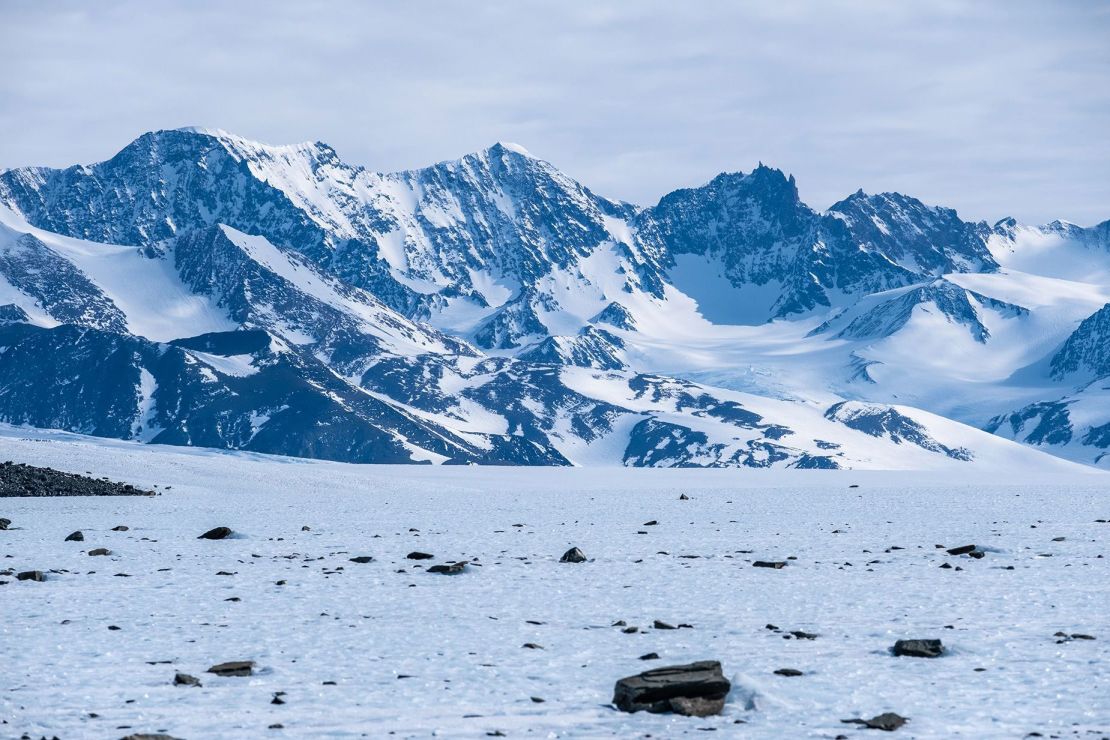
About 1,000 meteorites are found in the white, icy desert of Antarctica each year.
The fragmented space rocks tell a story about the formation of our solar system, helping astronomers piece together the history of this corner of the universe.
But global warming due to the climate crisis is causing meteorites to sink into the melting ice. About?5,000 of the space rocks could vanish?each year, new research suggests.
Curiosities
Bookmark these stories to share with your friends:
— Archaeologists working at Pompeii in southern Italy have uncovered the remains of a banquet hall?decorated with striking frescoes of mythological characters.
— Rangers in Western Australia have captured an image of an incredibly rare, bizarre-looking blind mole — and it’s the second sighting in six months.
— Rock carvings called?petroglyphs found next to dinosaur footprints?in Brazil’s Paraíba state were likely created by prehistoric humans who may have found the tracks meaningful, according to a new study.
Like what you’ve read? Oh, but there’s more.?Sign up here?to receive in your inbox the next edition of Wonder Theory, brought to you by CNN Space and Science writers?Ashley Strickland?and?Katie Hunt. They find wonder in planets beyond our solar system and discoveries from the ancient world.
